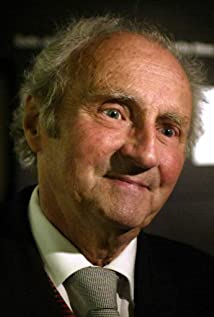
André Albert Auguste Delvaux was a Belgian film director. He co-founded the film school INSAS in 1962 and is regarded as the founder of the Belgian national cinema. Adapting works by writers such as Johan Daisne, Julien Gracq and Marguerite Yourcenar, he received international attention for directing magic realist films.

Benoît Poelvoorde is a Belgian actor and comedian.

Jaco Van Dormael is a Belgian film director, screenwriter and playwright. His films especially focus on a respectful and sympathetic portrayal of people with mental and physical disabilities.

Brothers Jean-Pierre Dardenne and Luc Dardenne, collectively referred to as the Dardenne brothers, are a Belgian filmmaking duo. They write, produce, and direct their films together. They also own the production company Les Films du Fleuve.
Léa Pool C.M. is a Canadian and Swiss filmmaker who taught film at the Université du Québec à Montréal. She has directed several documentaries and feature films, many of which have won significant awards including the Prize of the Ecumenical Jury, and she was the first woman to win the prize for Best Film at the Quebec Cinema Awards. Pool's films often opposed stereotypes and refused to focus on heterosexual relations, preferring individuality.

Cinema of Belgium refers to the film industry based in Belgium. Belgium is essentially a bi-lingual country divided into the Flemish (Dutch-speaking) north and the French-speaking south. There is also a small community of German speakers in the border region with Germany. Belgium is further a federal country made up of three regions and three language communities . Due to these linguistic and political divisions it is difficult to speak of a national, unified Cinema of Belgium. It would be more appropriate to talk about Flemish or Dutch-language cinema of Belgium and Walloon or French-language cinema of Belgium.
Alessandro Avellis is an Italian film director.

Fabrice Du Welz is a Belgian film director and screenwriter. He has directed several films including Calvaire in 2004, Vinyan in 2008 and Message from the King in 2016.

Joachim Lafosse is a Belgian film director and screenwriter.
A Magritte Award is an accolade presented by the Académie André Delvaux of Belgium to recognize cinematic achievement in the film industry. Modelled after the French César Award, the formal ceremony at which the awards are presented is one of the most prominent award ceremonies in Belgium. The various category winners are awarded a copy of a statuette. The awards, first presented in 2011, are considered the Belgian equivalent of the Academy Awards in the United States.
Cinema of the Democratic Republic of the Congo originated with educational and propaganda films during the colonial era of the Belgian Congo. Development of a local film industry after the Democratic Republic of the Congo gained its independence from Belgium in 1960, and was handicapped by constant civil war.
Balufu Bakupa-Kanyinda is a filmmaker from the Democratic Republic of the Congo.
Mwezé Ngangura is a film director from the Democratic Republic of the Congo (DRC).

Thierry Michel is a Belgian film director, mostly making social and political documentaries. His office and company Les films de la passerelle is located in Liège, where he works with the producer Christine Pireaux. Over a twenty-year period he has made a series of documentaries on different aspects of Zaire . Taken together his films provide a unique overview of the social, economic and political life of the country.
Kinshasa Kids is a Belgian drama film, which was screened at several film festivals in 2012 and released on February 6, 2013. The film was written and directed by Marc-Henri Wajnberg.
Sophie Deraspe is a Canadian director, scenarist, director of photography and producer. Prominent in new Quebec cinema, she is known for a 2015 documentary The Amina Profile, an exploration of the Amina Abdallah Arraf al Omari hoax of 2011. She had previously written and directed the narrative feature films Missing Victor Pellerin in 2006, Vital Signs in 2009, The Wolves in 2015,
Kiripi Katembo, also known as Kiripi Katembo Siku, was a Congolese photographer, documentary filmmaker and painter. Katembo's short films, photography and other projects focused on the daily lives of the people of Kinshasa, as well as the economic and social challenges facing the Democratic Republic of the Congo. He was also a founding director of Mutotu Productions, his film production company, and the executive director of Yango Biennale, based in Kinshasa.

César Díaz is a Belgian-Guatemalan film director, screenwriter and editor.
Vincent Bal is a Belgian filmmaker and visual artist widely known for his artwork based around shadows cast by everyday objects. As a writer and director he is best known for Miss Minoes (2001), The Zigzag Kid (2012), Belgian Rhapsody (2014), and The Bloody Olive (1997).
Bérangère McNeese is a Belgian-American actress, screenwriter, and filmmaker.









